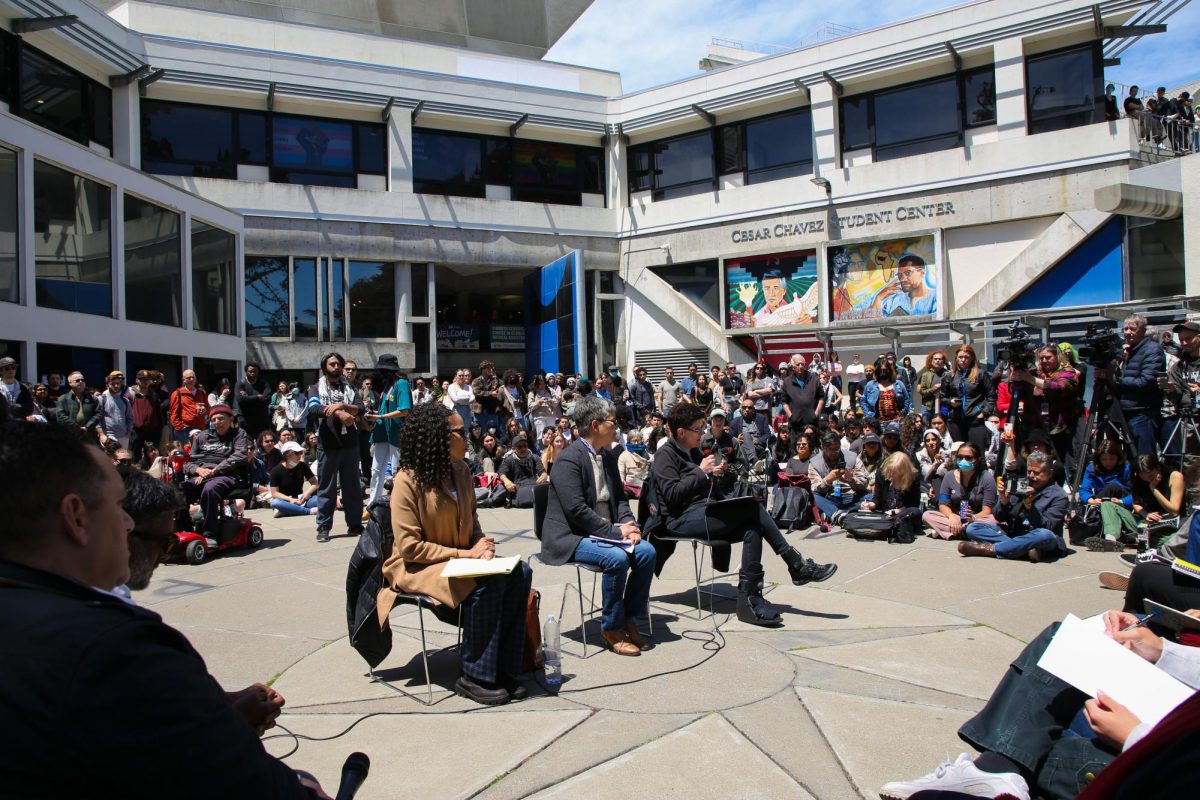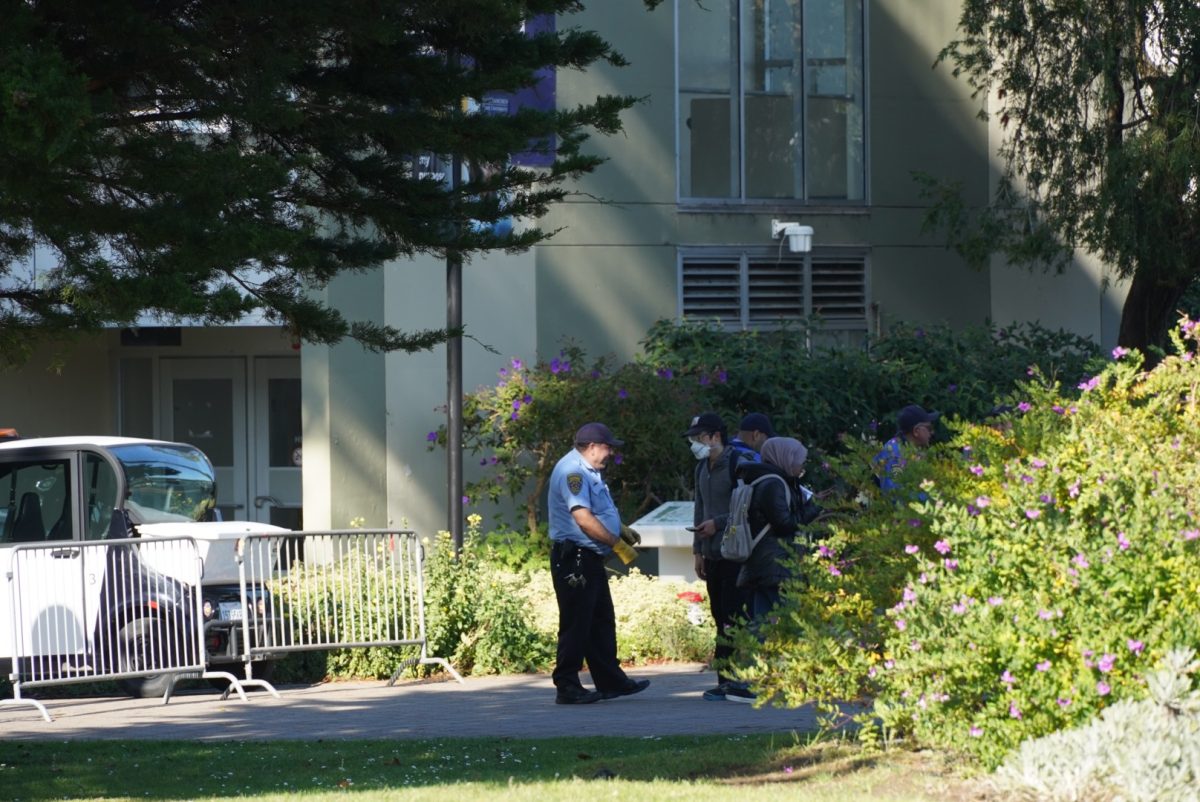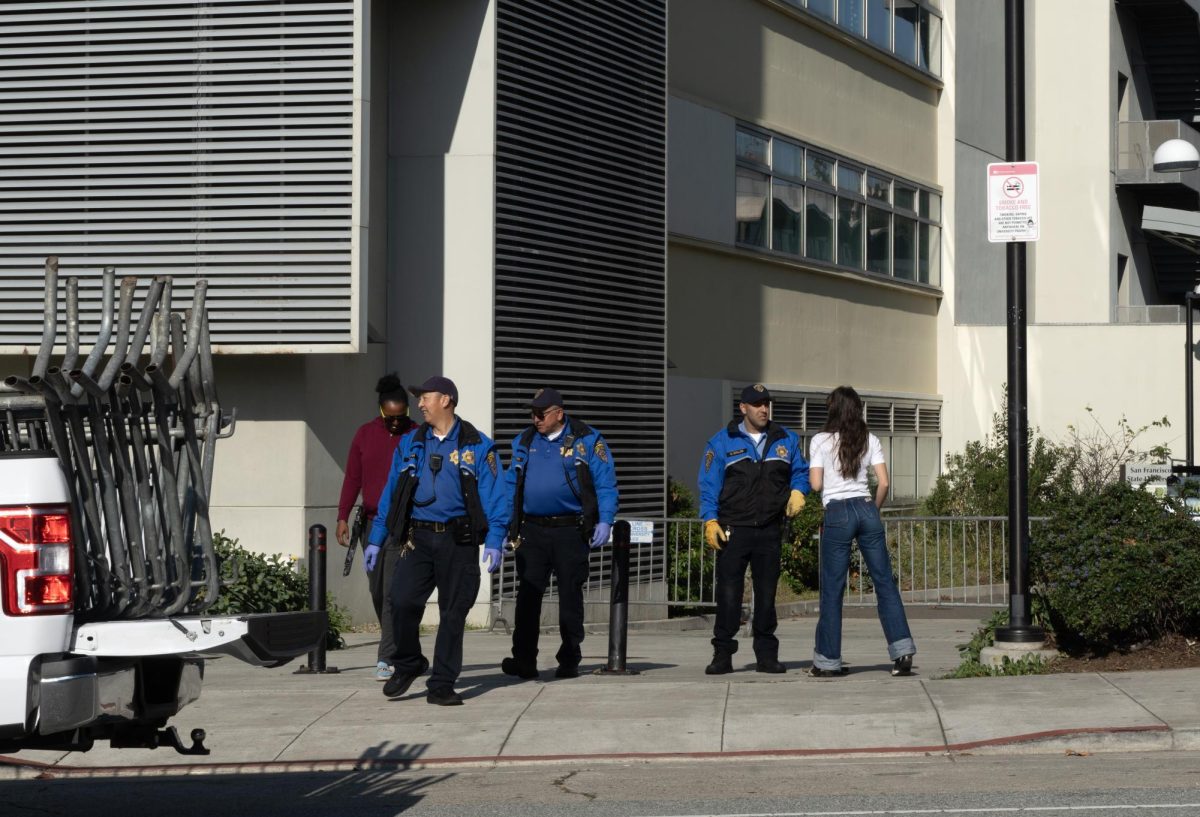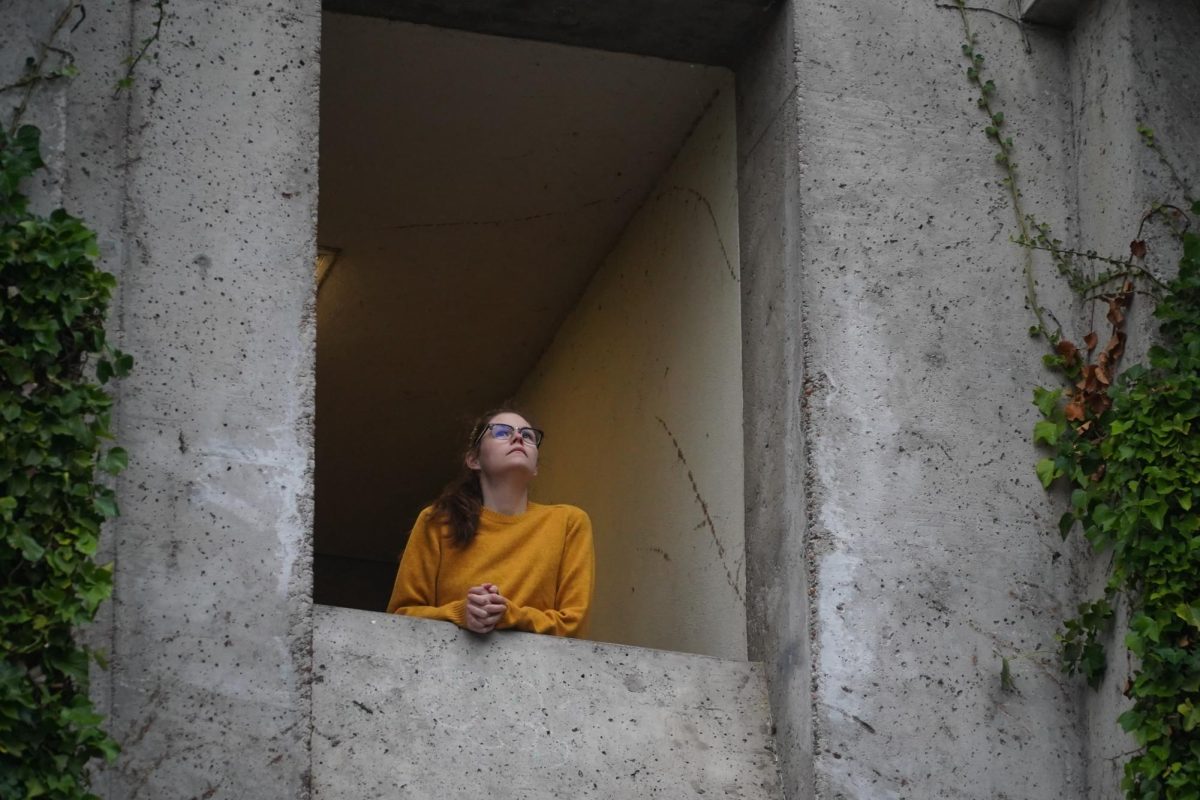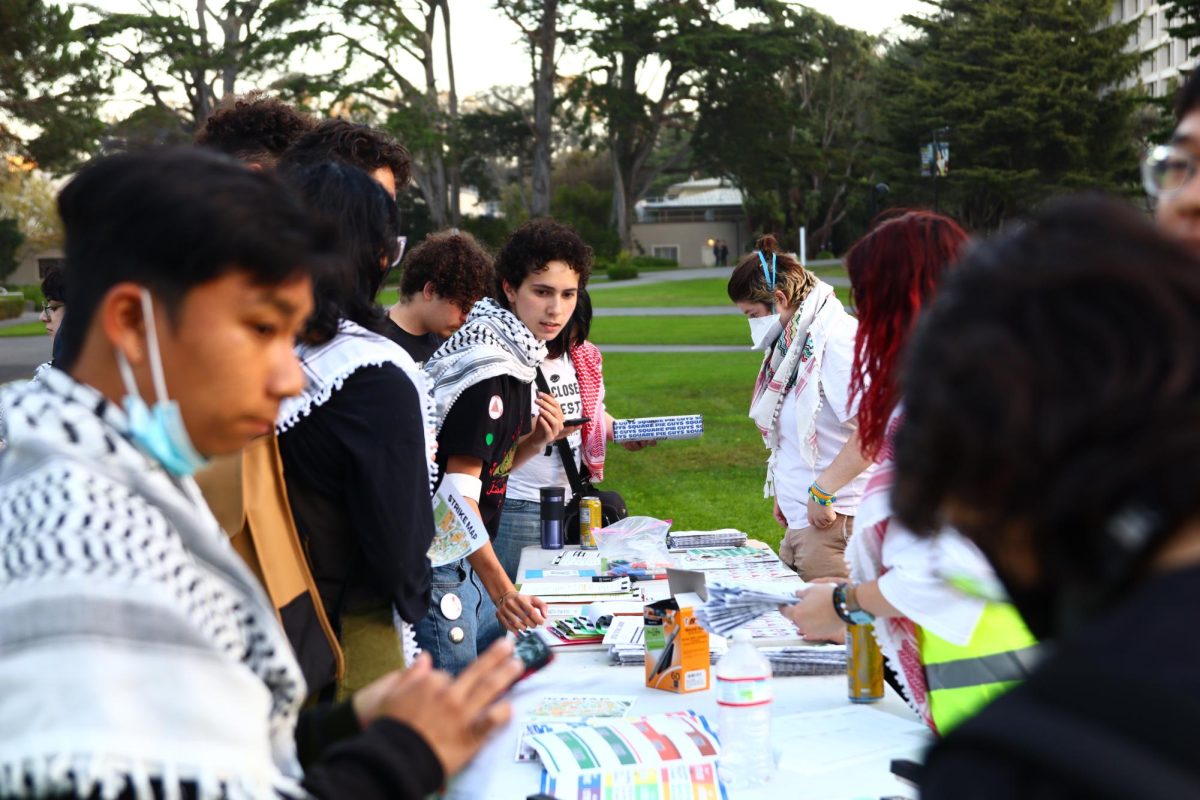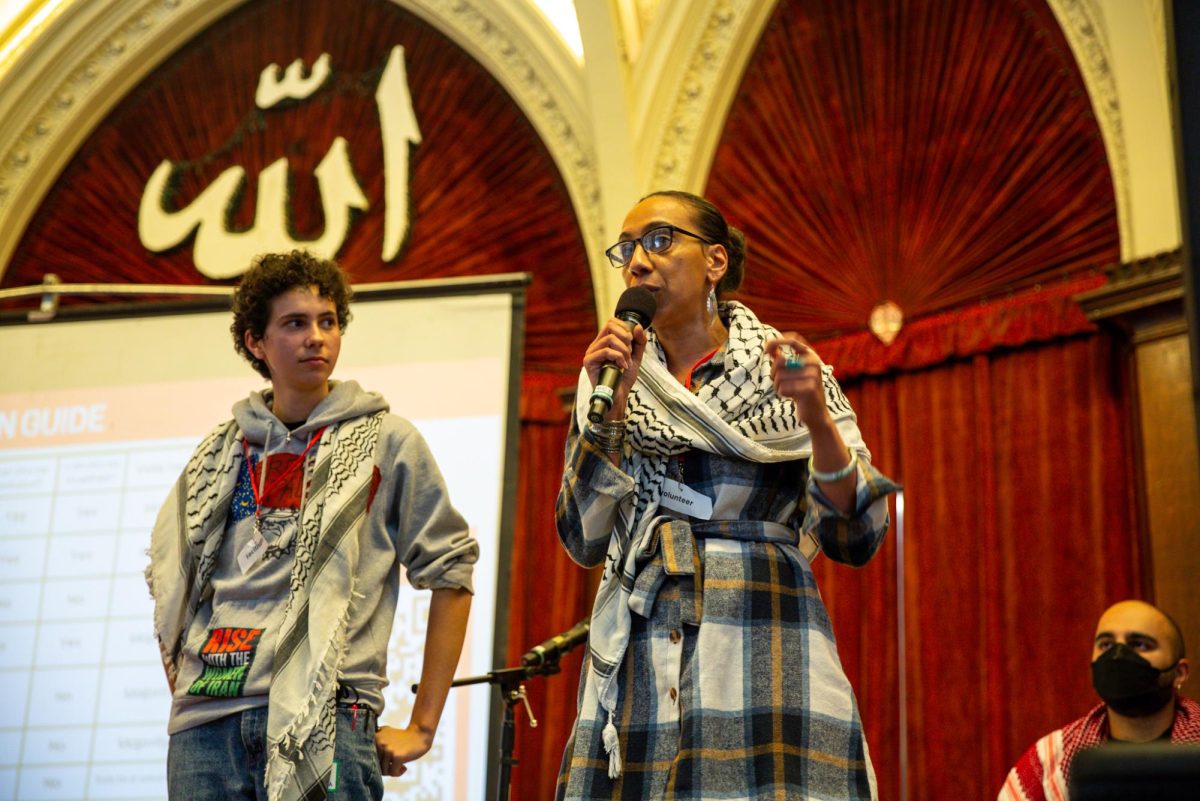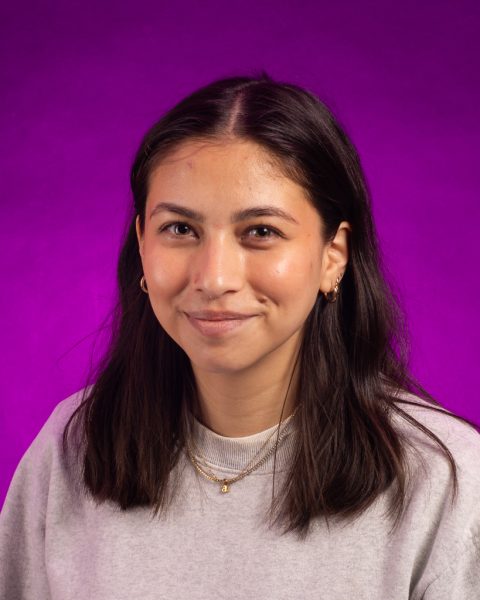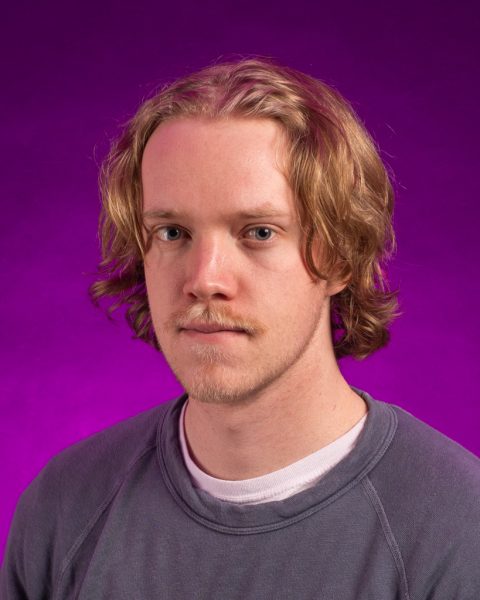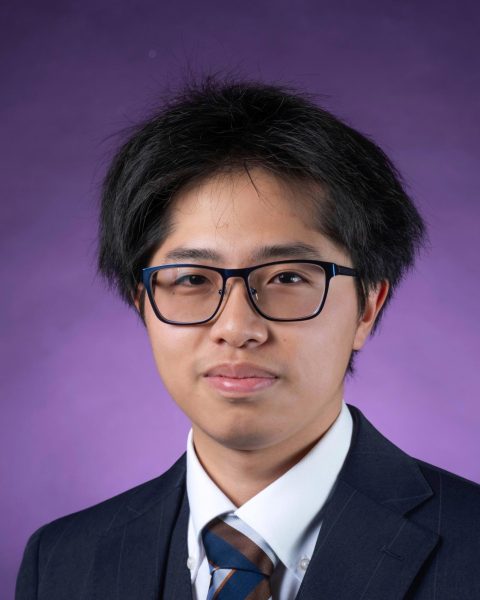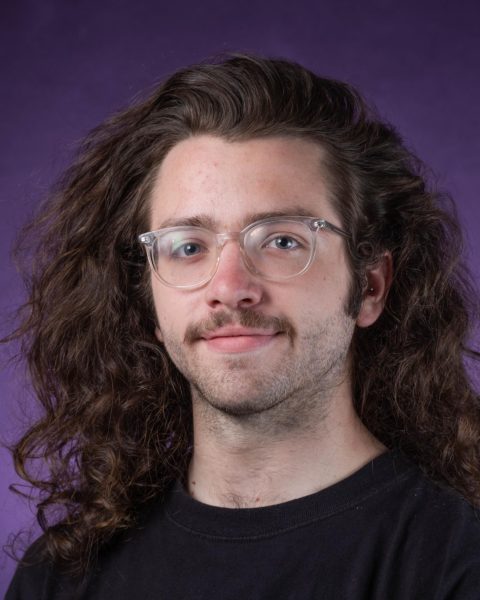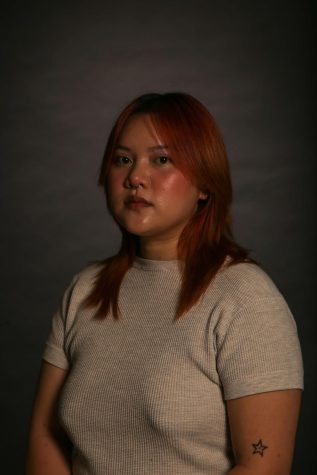San Francisco State University President Lynn Mahoney will be attending an open bargaining session with Students for Gaza SFSU, organizers announced on May 4. The meeting, which will take place at Malcolm X Plaza, comes in the wake of ongoing pro-Palestine encampments on campus.
SFSU encampments — organized by Students for Gaza SFSU — began on April 29 and are entering their second week of camping.
According to the organization’s press release on Monday morning, “This moderated, open negotiations session has been called to discuss the demands of the SFSU Encampment (Disclose… Divest… Defend… Declare…) and will be the first of its kind in the movement of pro-Palestine student encampments nationwide.”
“President Mahoney is always willing to meet with students. She’s looking forward to an open [dialogue],” said Bobby King, director of communications for the president’s office.
8:55 p.m.
A picket will be held on Tuesday, May 7, near 19th and Holloway Avenues from 7-11a.m., according to an Instagram post by Students for Gaza SFSU. The demonstration is a response to Lynn Mahoney not meeting any of the organization’s demands during the open bargaining event.
1:40 p.m.
Attendees expressed their thoughts on the event.
“The encampment will continue until we see actionable causes for our demands,” Sydney said.
Gopal Dayaneni, a lecturer at SFSU who spoke during the event’s introduction, expressed during the event that he was very impressed with the organizers.
“I think their discipline, their clarity, their principled stances, have made it impossible for the administration to ignore them,” said Dayeneni in an interview after the event. “I think it is disappointing that the president is claiming that it’s not my job to take a position on global events when we are — and she, much more than me, is a public intellectual and should be actually taking positions and expressing how she understands what is happening in this world.”
At 3:30 p.m., the encampment will hold a general assembly to recap the bargaining meeting and plan the movement’s next steps.
1:30 p.m.
No agreement was met by the parties.
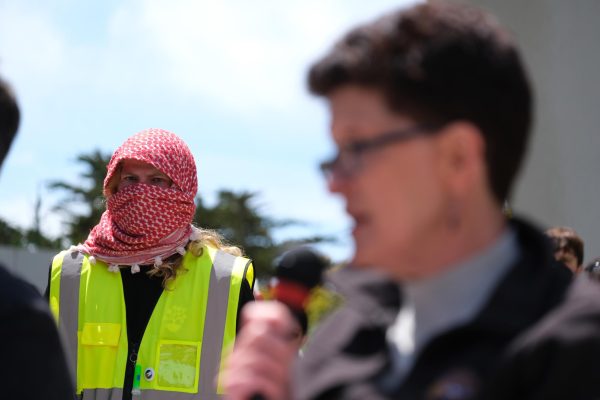
Ali Noorzad, co-chair of SFSU’s Young Democratic Socialists of America chapter, gave closing remarks for the discussion.
“This is about a wider movement to end the genocide and end the occupation,” Noorzad said. “This is about the hundreds of students and workers fighting for a free Palestine. This is about us stepping into a moment in history.”
Mahoney left, refusing to speak to anyone, as the crowd chanted “Free, Free, Free Palestine.”
1:20 p.m.
A speaker asked Mahoney about Senate Bill 1287, stating that the bill would require CSU students to censor themselves when they enroll in the system.
The bill is an amendment to a portion of the Donahoe Higher Education Act and requires CSUs to create student code of conduct policies that prohibit students from engaging in violence, harassment, intimidation, and discrimination. The bill also requires campuses to clearly designate spaces for where protests may be held and which areas are accessible for public, limited public, or nonpublic gatherings.
“My role is actually, to make it safe and I don’t just mean physically — I mean, culturally, political, and socially, for every group on this campus to speak its piece, and to have the right to express their identity here,” Mahoney said. “It kills me that you all have to keep your faces covered. I know why you do it, but it kills me that you have to do that in the U.S. Democracy’s messy, it’s ugly, it can be really conflicted right now. If it can’t play out on a university campus, then the U.S. is doomed.”
A student asked, “Will you declare that this is a genocide?”
“I am not the secretary of state,” Mahoney responded. “As a president of a university, I don’t make political statements. I have in the past broadly talked about how I don’t support as individual violence or violence against unarmed civilians. That never changes. But no, I don’t I don’t make broad political declarations. I’m not running for office; I have one concern, and it’s everyone around this circle. And it’s making sure that you and the folks who come after you, and the people who disagree with you on campus, or outside organizations that don’t agree with us and have the right to come here and engage in that messy democratic process. And to do that, I steadfastly believe, requires that [university] presidents not mistake their roles for being that of secretary of state.”
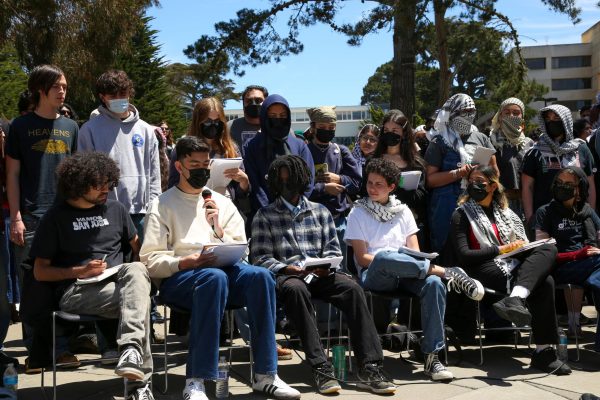
1:15 p.m.
Students asked how they will be taken seriously in the next CSU Board of Trustees meeting on May 19.
“How can you as the president give us the space in that Board of Trustees meeting to not only just talk to other presidents individually, but have us directly talk to the board and have our demands taken seriously?” a student asked.
“So one of the great frustrations, I think of, of being a student and a student leader or student activist is that you’re here for a short period of time, and I know it often feels like, you’re not listened to — that you make a demand, you make a request, and it doesn’t happen,” Mahoney said.
“So, I don’t drive the agenda for the Board of Trustees in any way — I’m not on the board. I’m a participant in the sense that I’m a spectator there to be available to answer questions for the board. But again, let’s go back to where I started. Let’s have that conversation with our investment… Let’s get something done with both transparency on a website, a conversation about our investment policy, and then have something to bring to them. I mean, I expect you all to be there in May.
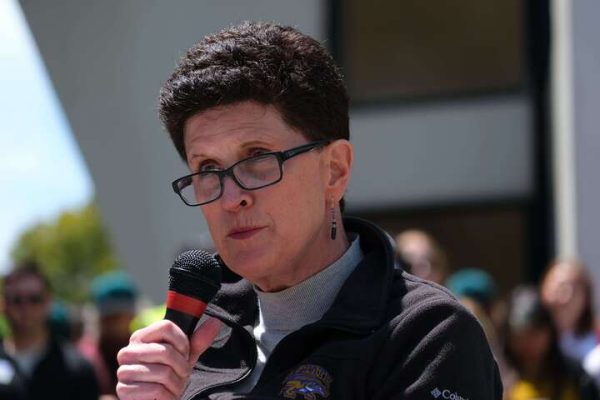
Let’s bring something to them that shows it can be done. And then, in particular, if enough CSU presidents, like the two colleagues that I spoke with, are also interested in transparency, and in investment policies that align with the kind of social justice, social change mission at the CSU, then we have something to show. So, I’ll do the best that I can. We need to do this here. That’s what’s got to happen first or simultaneously with activism at the board.”
1:00 p.m.
The negotiation has started. President Mahoney has arrived at Malcolm X Plaza. According to Sydney Rincón, this is the first time a CSU president has sat down with students of an encampment.
“We look forward to having an honest and productive conversation,” Rincón said to the crowd.
Students are putting forth demands and giving space for a response from Mahoney and other administrators.
“I hope I’ve made clear over the past few years that my full support for freedom of speech, academic freedom — and student activism is a key part of that,” Mahoney said. “So I’m grateful to all of you for the opportunity to be here.”
The university focuses on investing in women-owned and BIPOC-owned companies and engaging in solutions, according to Mahoney.
“The company Cambridge does our investments, but yes, I’d be happy to do something more permanent than just responding to this request,” said Mahoney after students asked for a revised investment policy on how endowments are invested to maintain transparency. “Give me a couple of names of folks who want to sit down with me and Jeff and a representative from Cambridge and let’s hammer out exactly what it would look like.”
Jeff Jackanicz is the associate vice president of university advancement and president of the SF State Foundation, the nonprofit organization responsible for SFSU’s investments.
12:30 p.m.
Students at the encampment are being represented by media liaisons who were democratically elected, according to Sydney G., a political science and cinema major who will be speaking.
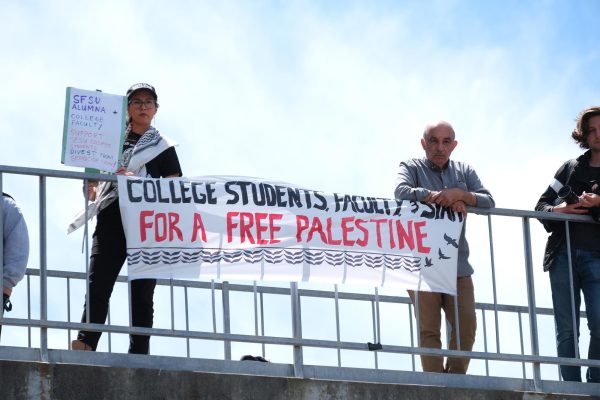
“We are very thankful that she was able to come and have this conversation with us. We also understand that this is only going to be the first conversation of many that we hope are going to be cordial and productive,” Sydney said.
Update: This story’s quotes have been updated for clarity.





